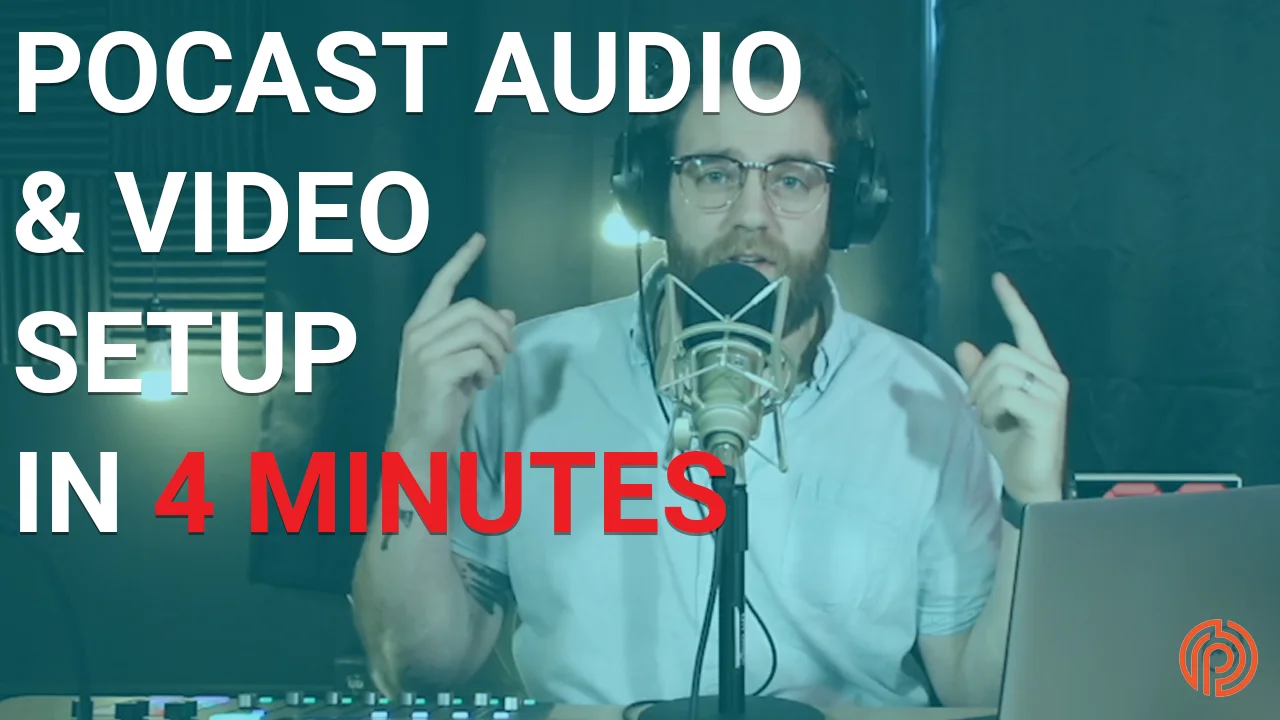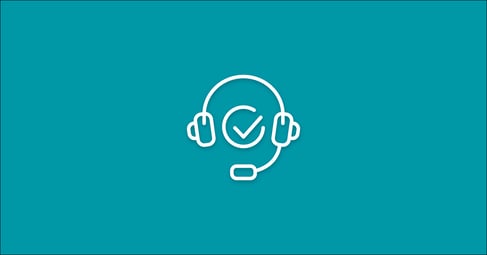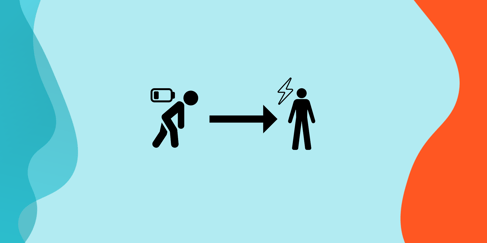Written By:
Will Purcell
Writing a script is an important step in planning for an upcoming podcast recording. In this article, we take a deep look at how to create a podcast script. The details will obviously vary by show, but generally speaking, each script should follow this structure:
-
Start with an outline. This allows you to better understand the episode’s topic.
-
Then move to introductions, which need to be clear and concise.
-
The heart of an episode is an interview. Prior research is absolutely required here.
-
Finish with an outro (summarize recording, thank listeners, issue call to action).
Learning how to write an interesting and effective podcast script is an essential skill for anyone considering launching their own podcast. It ranks right up there with learning how to choose podcast topics; while it might seem obvious, it’s integral to a successful podcast launch.
Some podcasters prep for each episode with a word-for-word script, while others simply highlight specific points to include in their recording. So, when it comes to your podcast: Which script format is best?
The simple answer is there is no right or wrong way to write a script. However, there are some key elements that each script should always include. Below, we’ve provided some examples and tips to help you develop the best possible script for your show, regardless of your industry focus or podcast experience.
Starting a podcast? Download our workbook!
What goes into a great podcast script?
Ultimately, the shape and flow of your script will depend on the format of your podcast. For example, podcasts centered around interviews will naturally be different than podcasts centered around a single-host format.
Regardless of the format, it’s usually a best to create a script outline to keep your topics and segments organized in a way that not only makes your script easier to write, but also helps develop the tone for your recording.
That being said, most podcast scripts will include the following components:
1. Introduction
Introductions are short, but that doesn’t diminish their role in promoting a successful podcast. This is the first thing listeners will hear or viewers will see, so it’s important to deliver a solid message at the start of each episode.
Introductions will obviously vary from podcast to podcast, but virtually all successful show intros will include some variation of the following:
- Podcast’s name
- Episode title/number
- Host’s name
- Co-host’s name
- Summary of the episode’s main topic
- Sponsor reads (this is not always the case, but in most cases, a sponsor read will take place at the beginning or end of the recording).
Not surprisingly, the tone and delivery of introductions will likely change from podcast-to-podcast. For example, a comedy themed podcast will probably have a lighter, more upbeat tone in their introduction compared to that of a news themed podcast.
Need some tips on writing an introduction script? Check out these three examples below:
Introduction with Guest
“Welcome to [PODCAST NAME], my name is [NAME] and I’m happy to be joined by [GUEST NAME], as we discuss [SHOW TOPIC] and the resulting impact on [INDUSTRY FOCUS].
[GUEST] is a [GUEST TITLE] with [YEARS OF EXPERIENCE] in [GUEST INDUSTRY].
[GUEST NAME] welcome to the show and thanks for joining us!” – then proceed with your conversation/interview.
Script for introduction for solo host
“Welcome to [PODCAST NAME], a show about [SHOW FOCUS].
My name is [FIRST, LAST NAME] and today I’m talking about [EPISODE MAIN TOPIC] and the impact it has on [INDUSTRY].”
Introduction for “How-to” Podcast
Check out the following video by Pepperland Inbound Specialist, Ryan Sylvestre, for an example of a clear and concise introduction.


“Hey everyone, I’m Ryan Sylvestre from Pepperland Marketing. Today I’m going to be walking you through our technical set up for our podcast studio and how you can replicate it so you can record audio and video at the same time.”
Transcribed Introduction
This introduction is only 10 seconds long, but it covers all the basics. Ryan introduces himself, establishes the video’s focus, and lets viewers know what they’ll learn by watching the video.
Main Segment(s)
This is where your main topic and ideas should be discussed in greater detail. Each podcast’s main section will inevitably vary depending on the chosen format and/or topic. For example, a podcast with several guests will most likely contain interview questions throughout the main segment of the script.
Conversely, a solo host podcast will probably contain more information and research in the script’s main segment due to only one person speaking throughout the recording.
Regardless of your format or topic, there are a few key points you should keep in mind when writing this section of a script:
- Write as you would speak: Simply put, be yourself. Write your script how you would speak to make the recording sound more natural and less rigid. A good tip is to say your ideas out loud before writing them down to ensure your script has the best possible flow.
- Keep things simple: In general, it’s a good idea to keep things simple. In other words, don’t overthink your script. Remember, a script provides a foundation for how your recording should sound. By keeping things simple, you can gain a better understanding of your podcast’s main message, which includes the details you should expand upon during the recording, and fluff that need to be left out.
- Research your topics: Proper research is absolutely essential for a successful podcast. Research not only defines the supporting points for your main topic, but also provides greater insight into your audience’s pain points and challenges.
- Know who you’re speaking to: Does your audience know a great deal about your main topic? Or, are they completely new to the idea? Should the tone of the recording be light, or should it be more serious? These questions can be answered by understanding who exactly your podcast is speaking to. The more you understand your audience, the better you can provide solutions to their challenges while establishing yourself as a valuable resource.
- Leave room for improvisation: Improvisation may sound challenging, especially for first time podcasters, but it doesn’t have to be. A great way to work around fear of improvisation is by taking time to adequately prepare for a recording. In other words, trust yourself. The more you prepare and research for a podcast topic, the more comfortable you’ll be when providing supporting information and detail during a live recording.
Outro
Similar to an introduction, an outro should be concise, but also convey a main point. Whereas the intro discusses the main message of the recording, your outro should provide a quick summary of the episode with some form of actionable “next step”.
A verbal call-to-action, or CTA will lead an audience to other content on your site, which not only drives web traffic, but also builds your podcast’s credibility and authority within an industry. This is especially relevant for business focused podcasts where nearly every piece of content is designed to cement your services or products as a valuable industry resource.
It’s also common for sponsor reads to be placed in a show’s outro. Unlike interviews, sponsor reads are usually word-for-word scripts that highlight a service or product. The length, placement, and copy of a sponsor read will depend on the preference of your advertisers. Sponsor reads can also be placed in the introduction of a show—usually in a format that reads something along the lines of “This episode is brought to you by…”—but it’s always a good idea to thank sponsors at the end of each recording too.
Outro Example:
“Thanks again for listening to today’s episode of [PODCAST NAME]. We’d also like to thank our sponsors, [LIST OUT SPONSOR NAMES].
Be sure to sign up for our newsletter for more information about [PODCAST TOPIC], or connect with us online by following our social channels at [TWITTER HANDLE/FACEBOOK PAGE/LINKED IN PAGE/INSTAGRAM HANDLE].
Thanks again for listening/watching!”
Drafting a Full Show Script
As you can see, there are a number of important details to remember when writing a podcast script. Remembering all these details for each show can seem challenging, especially considering the full scope of a podcast campaign.
That’s where a podcast service can help. A podcast service can not only provide useful script templates for each show, but also assist in gathering topic ideas, guests, and potential sponsors.
Regardless of your podcasting goals or aspirations, having a guide to help you through each step of the campaign can grow your audience’s reach and ultimately provide your listeners with the best content possible.








